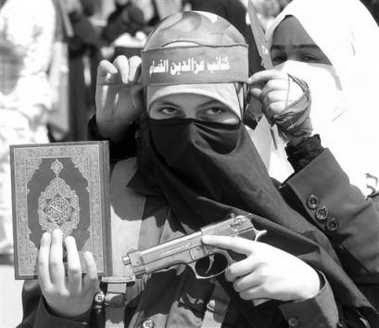Both texts taken from Alfredo M. Bonanno’s ‘Palestine, mon amour‘ published by Elephant Editions & translated by Jean Weir.
Not Just Buttons
A police force is always a police force for the simple reason that a State, even one in tatters such as the Palestinian one, is always a State.
Now, for whoever in his time has struggled for the ideal of the liberation of the Palestinian people (each in his own small way may have given some contribution), the thing takes on a particular significance. To think that comrades in struggle, a struggle that once spread like an epidemic more or less everywhere in Europe and beyond, are now donning the shiny buttoned uniform, a bad imitation of the English cops, is quite indigestible.
But policemen do not just wear uniforms, they don’t just polish their buttons; they control, repress, beat and on occasion shoot and kill without giving it a thought.
Gaza is not a large city, it has few tarmac roads and, as in so many other parts of the Arab world, those there are look like little village lanes. Arafat’s policemen are now present in the area where the Israeli Shin Beth were once stationed. Not just policemen, but the court, the prison, and the secret services. All small, not very efficient, but it’s the thought that counts.
What has happened to the Intifada?
It goes on, of course, against the bosses old and new. So boys and girls are arrested, taken to the multifunction building of Palestinian State repression, interrogated by condescending investigators and judged by improbable judges. They are also children, just a little more grown up, born in the concentration camps. What can they say under the illuminated strategic direction of the great Leader?
In the same way that it took us years to convince ourselves that the Israelis were torturers even though they had just come through the extermination camps, now goodness knows how long it will take to see that the Palestinians, comrades once upon a time, can become torturers today.
Reality evolves, and in evolving the masks men hide behind in order to recite their roles change. But often the role behind the mask also changes, without anyone noticing.
[‘Non solo bottoni’, published in Canenero no. 20, March 24 1995, page 2]
From Marx to the Uri
Many things are changing in Palestine. Many others have stayed as they are. Poverty and hatred are rife as always, especially hatred of the occupying forces, that is of the soldiers of Israel still present in the Territories.
What could be more natural than to hate invaders? Only politicians who have sold out to the enemy and contracted the possibility of an internal government and a puppet of a State rather than the continuation of the struggle, could think differently. Many Palestinians, are not prepared to accept cohabitation based on the defence of the interests of the strongest.
That explains the spread of resistance, which presents itself almost uniformly under the insignia of Hamas, inside the same newborn State of Palestine. This is certainly the most consistent armed group of the present time. It is doted with considerable means, as became evident in the explosion a few days ago [1995] that blew up a whole arsenal.
There’s nothing easier in that region than to find a young boy between twelve and sixteen, born and brought up in the poverty and violence of the concentration camps, who is disposed to listening to arguments against Arafat and his project of a free Palestine coexisting with a free Israel. Nothing could be easier than to push these boys to carry out a suicide bombing.
That is what those of the Izz al-din al hassam, the armed wing of God, who are not boys but religious fanatics, are preparing the former for — a holy death in the war against the infidels.
Twenty-five years ago, in conditions that were certainly not any better than those of the present time, the struggle of the Palestinians was based almost entirely upon a different kind of indoctrination, the Marxist one.
At that time intermediaries with long beards promised them help in the form of money and weapons; now Islamic priests are promising eternal life in a paradise full of Uri.
[‘Da Marx alle Uri’, published in Canenero, no. 22, April 7 1995, page 2]

